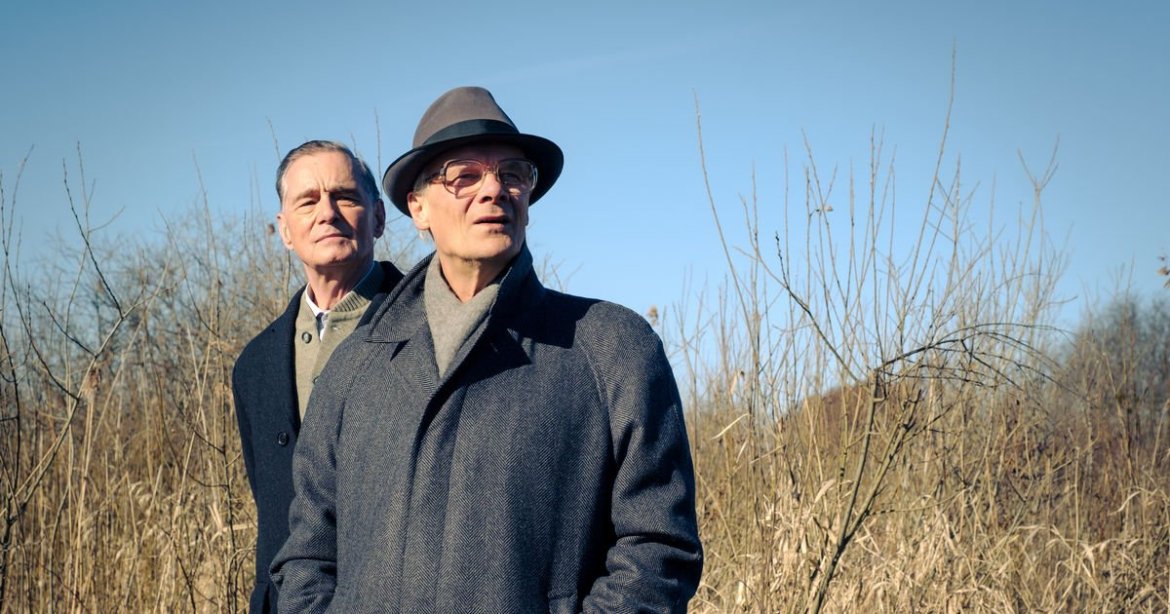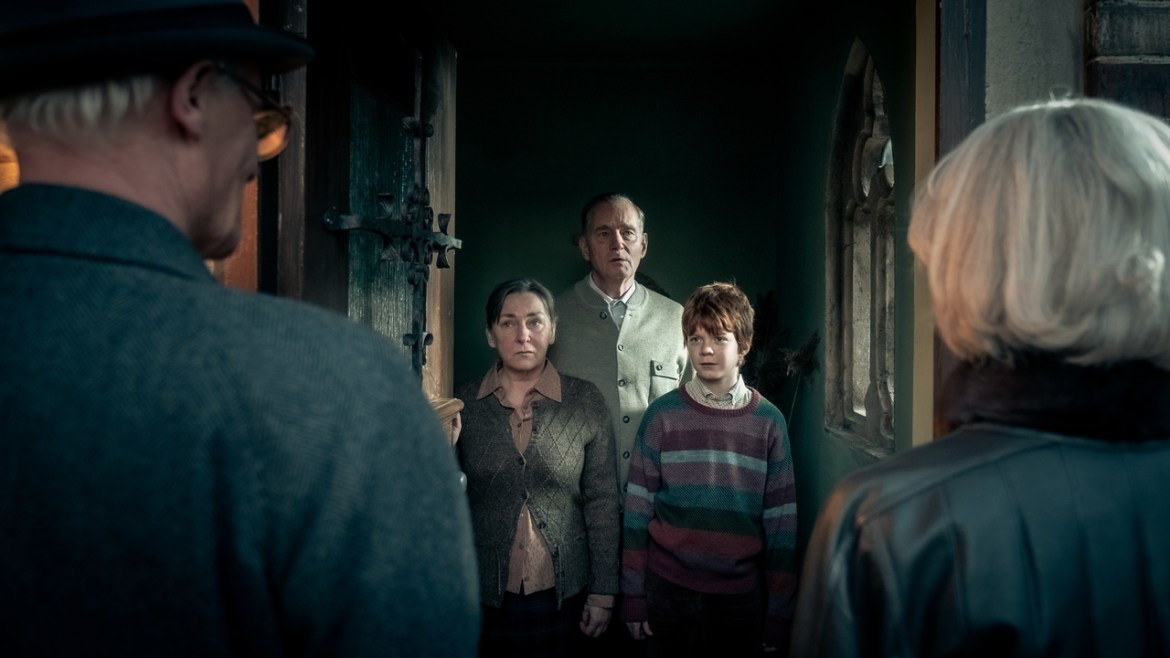I recently came to the catalog of filming this film, which recreates a little-known historical episode: what happened to him, after the fall of the Berlin Wall and the end of the Cold War, to the former General Secretary of the United Socialist Party between 1971 and 1989 and President of East Germany from 1976 to 1989.
The protagonist of close to your enemy It is Enrich Honecker, who was faced, we could say, overnight, with charges of high treason, for which he was abandoned to his fate, in such a way, that he could not even have a place to live. In 1990, the GDR was dying and German reunification was already a fait accompli; the entire town turned against Honecker who became the biggest public enemy for his own town, as well as the population of western Germany.
Honecker went from being one of the most powerful leaders in the world, to a sick, hated old helpless man. Still, absolutely anchored in his ideas. Certainly very close to her wife, Margot, who for years was Minister of Education in the government of her husband; both fully agreed on his approach.
Luckily Honecker and Margot, in that terrible desolation, are temporarily welcomed by the couple formed by the Protestant pastor, Uwe Holmer and Sigrid, his wife. Something unusual in the historical and political context. These are months in which a discreet and smooth coexistence is created. Surprisingly, the close prudence of a good marriage stands out, which, naturally, represent and manifest their firm Christian convictions in the face of the stubborn convictions of the Honeckers.
The Holmer family lives in Lobetal, north of Berlin, where the pastor carries out social work to provide accommodation and care for the disabled and homeless and with other mental problems. It was founded in 1905. They are the parents of ten children, most of them already independent, the two little ones staying at home: Taugrott, the youngest, the teenager, and Kornelius. The Honeckers lived there for several months, arousing opposition from neighbors and journalists, giving rise to various demonstrations, some violent and all annoying; It is verified how the depersonalized masses can be terrible, and also the media, with the harassment suffered by the occupants of the Holmer home.
Especially powerful is the moment in which Uwe attends a television program, and his confrontation with a young woman who considers herself incapable of forgiving those who led to her placement in a re-education camp where she suffered all kinds of abuse. These are hard moments that help to know what was experienced in our not so distant past history of Europe. And that move the heart to know how to rectify and forgive.
Director, Jan Josef Liefers, and the scriptwriter, Fred Breinersdorfer -both Germans- give us a film of great depth. The photography, the musical adequacy, the rhythm introduce us to the life, so often difficult and fragile, of the performers. Despite this, for some critics this feature film seems almost conventional and excessively soft. That is not my opinion.
I am surprised that each interpreter lives the character they represent so deeply that the film keeps you in a sustained and entertaining tension, in which the viewer calmly discovers what each one contributes, what is wrong with their performance and almost what they want to happen.
Holmer is a crack; always serene, attentive to everyone, offering loyalty and his courageous friendship; He is a good man in every sense of the word, with bomb-proof dignity and patience; he gives a lesson in life and morality to the members of his family, to his patients, to the journalists, to the erratic ex-leader; to all. We are before an admirable and imitable man.

His wife, Uwe, so ordinary and so extraordinary. How she accompanies her husband, how she creates a home, how she overcomes not entirely comfortable situations; with initiatives to overcome inconveniences. Her look softens her, attracts. The adolescent Kornelius really works in the cinema, with the reactions of fair and clear protests, typical of his age and what he lived in his family, and his strong character.
And the little Taugrott, born observant, -he has the look of a child and of adventure-. At the end of the film we find out that he is the chronicler of that time and that he narrates his memories now that he has already turned forty.
Very typical and not a little painful “marriage of tyrants”, with its tics, with its hobbies -this juice, this chair, this TV-, and mainly, especially at the beginning, of not wanting to receive or thank. It is also impressive that the actor edgar selge looks a lot like the real Honecker
The film is exciting you; He is very human and, like life itself, nothing is completely easy but neither is it impossible. It is appreciated when the Honecker grandchildren come to visit their grandparents and play with the Holmer children. It is always like this, children are the “spark” of life. A new hope.
It’s lovely to listen to one-on-one conversations of the two men, and of the two women, with the strength of the coherent spirituality of the Protestants and with the criticism, partly intelligent and always closed, of the communists. They are slightly ironic situations, and not lacking in humor, in which we discover the contrasts that it offers in that situation and in the that gives to think about key issues: family, unity, patriotism, generosity.
The critic picks it up very well Jose Maria Areste in DeCine 21, seeing the difference in mentality between those who try to be coherent with their condition as followers of Jesus, praying, forgiving, helping the enemy, and that of the others with their Marxist mentality where God does not fit, and with which they consider that everything what they have done is correct, in favor of the community.
In short, the film involves us in the complex coexistence of the Honecker couple in the home of a deeply Christian family and contrary to everything that their regime had represented.
I think it is lucky to have an entertaining, historical, well-acted feature film, in which once again it is discovered that good cinema is art of light, which reflects a very human symphony., As already said Antonio Machado and according Jose Luis Garcia It is the best definition of cinema “Today is always still”. Today I remember, today I anticipate, today I admire… today it is cinema.
The beauty of “Close to your enemy” and its dialogue between communists and Christians

